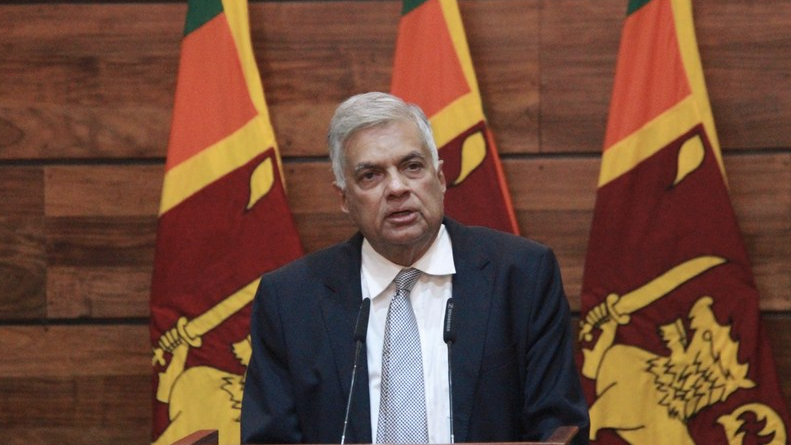Sri Lankan trade unionists, activists and students marched in the capital Colombo on Thursday October 27, against the poor economic situation and the government’s crackdown on protests. The call for the rally was given by the Trade Union Coordination Centre (TUCC) and the Combined People’s Movement, a collective of trade unions and civil society organizations.
Protesters raised concerns over the Ranil Wickremesinghe-led government’s suppression of dissent using tactics like intimidation, arbitrary arrests and detention of civilians under the Prevention to Terrorism Act (PTA). Police have regularly used tear gas and water cannons, and booked protesters under various legal provisions, including the PTA.
On October 6, the United Nations Human Rights Council (UNHRC) had passed a resolution calling on the government in Sri Lanka to investigate and prosecute former and current officials in the wake of the violent crackdown against protesters during the economic turmoil in the country.
The island is set to witness more protests in the coming week. Over 100 political parties, trade unions (TUs), student movements, and civil organizations, including the main opposition party in parliament, the Samagi Jana Balawegaya (SJB), the Sri Lanka Freedom Party (SLFP), the Frontline Socialist Party (FSP), the Ceylon Teachers’ Union (CTU), and the Inter-University Students’ Federation (IUSF), have planned a massive protest in Colombo on November 2 which they say is the “first step in ousting Wickremesinghe and government.”
Condemning the government for carrying out a “suppressive program,” Ceylon Trade Union (CTU) General secretary Joseph Stalin, who was himself arrested in August told The Morning.lk, “We have signed a joint statement against the Government’s program and several parties such as the SJB have expressed their support for this protest…..Our main demands to the government are to repeal the PTA, release [Wasantha] Mudalige and Siridhamma Thero (student activists) and all others who are being detained under the PTA unfairly, stop blocking and obstructing peaceful protests and assaulting and arresting those who participate in such, and release all those who have been arrested by the Police for engaging in the people’s struggle.”
The national government led by the coalition of former President Gotabaya Rajapaksa’s party Sri Lanka Podujana Perumuna (SLPP) and Wickremesinghe’s United National Party(UNP), came to power in July this year after nearly four months of the economic and political crisis and massive protests that forced the former president to resign.
For several months, working-class Sri Lankans have faced acute fuel shortages and food insecurity. Inflation rose to a new high at 73.7% in September while food inflation was recorded at 85.8% the same month.





